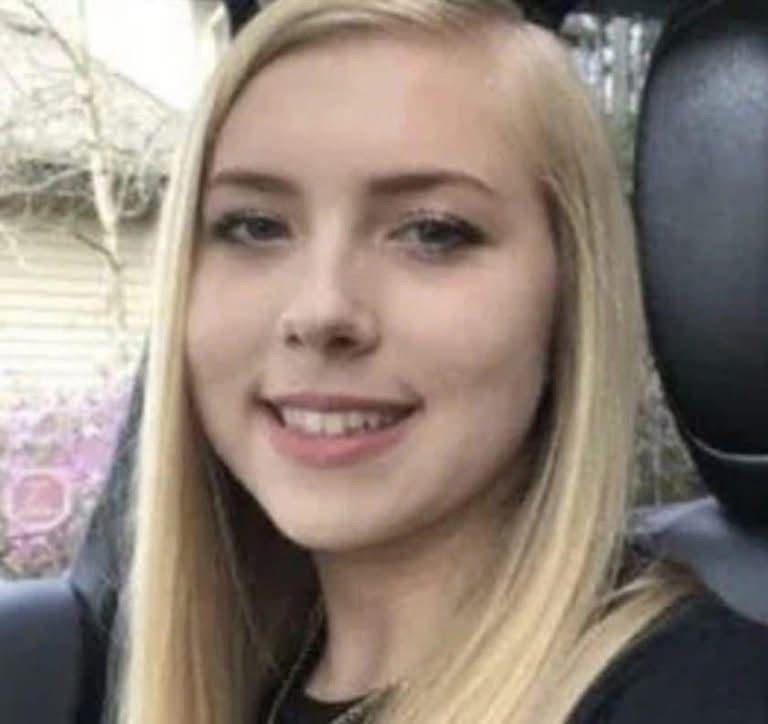Tragedy at a Coffee Shop: Remembering a Teen’s Story and Confronting the Opioid Crisis

The Tragic Story of Gwynevere Staddon: A Reminder of the Opioid Crisis
In August 2016, the quiet community of Port Moody, British Columbia, was shaken by the heartbreaking loss of 16-year-old Gwynevere Staddon. She was found unresponsive in a local coffee shop restroom, and despite the quick response of emergency crews, her life could not be saved.
What began as an ordinary day turned into a moment of grief that left her family, friends, and community searching for answers. Nearly a decade later, her story continues to resonate, shining a light on the dangers of opioids and the urgent need for awareness and prevention.
A Family’s Heartbreaking Loss
Reports at the time revealed that drug-related items were discovered near Gwynevere, leading investigators to suspect an accidental overdose. Her mother, Veronica, later spoke openly about her daughter’s struggles, remembering her as a beloved daughter, a bright young woman, and a friend whose life ended far too soon.
In a touching tribute, she called her daughter her “best friend,” expressing how her heart continued to break each day without her. Gwynevere’s story shows that addiction is never just a statistic — it is deeply personal and impacts families in profound ways.
The Challenges She Faced
Behind Gwynevere’s smile was a private battle. Like many teenagers, she had hopes and dreams, but she was also navigating the complex challenges of substance use.
According to her mother, Gwynevere had recently told her family she had quit using. “I’m all right now, Mom, I’ve quit,” were her words only weeks before her passing. They highlight both her determination to recover and the reality that addiction is a powerful illness that cannot always be overcome quickly.
The Role of Fentanyl in the Crisis
Health officials suspected that fentanyl — a highly potent synthetic opioid — may have been involved. Fentanyl can be up to 100 times stronger than morphine, and even a trace amount can be deadly. Often, it is mixed into street drugs without the user’s knowledge, making experimentation extremely risky.
Since 2016, fentanyl has fueled a surge of overdose deaths across Canada and the United States. Authorities have declared it a public health emergency, urging more prevention, treatment, and education efforts to protect young people.
A Community in Mourning
The sudden loss of a teenager in such a public place left residents of Port Moody shaken. Customers and staff were devastated, and community members came together to support the family. Local leaders stressed the importance of education, open conversations, and better access to mental health and addiction resources.
Her story served as a wake-up call: addiction is not a distant issue — it can touch any family, anywhere.
Lessons We Can Learn
Gwynevere’s story highlights important truths about addiction and prevention:
Addiction is a health issue — it requires treatment and compassion, not judgment.
The drug supply is more dangerous than ever — fentanyl has made even casual experimentation life-threatening.
Family and community support matter — safe, open conversations can help young people seek help without fear.
Awareness saves lives — tools like naloxone, which can reverse opioid overdoses, should be widely known and accessible.
Mental health and addiction are linked — many young people struggling with substance use are also dealing with anxiety, depression, or trauma.
The Bigger Picture
Between 2016 and 2022, Canada recorded more than 30,000 opioid-related deaths. In the United States, the CDC reported over 100,000 overdose deaths in 2021 alone, with fentanyl playing a major role. Teens and young adults are among those at risk, often due to experimentation and peer pressure.
These numbers show why Gwynevere’s story still matters today.
Honoring Her Memory
Nearly ten years later, her story remains a powerful reminder of the human side of the opioid crisis. By sharing it with compassion, her memory encourages awareness, prevention, and support for families going through similar struggles.
Her mother’s words — “My daughter, my best friend, my darling baby… my heart keeps shattering” — reflect the love that endures even after loss.
Final Thoughts
The story of Gwynevere Staddon is more than a tragic headline. It is a reminder that behind every statistic is a person — someone’s child, sibling, or friend. By reframing how we talk about addiction, focusing on empathy and action, we can work toward a future where fewer families face such devastating loss.
If you or someone you know is struggling with substance use, reach out to local resources or national support hotlines. Help is available, and recovery is possible





